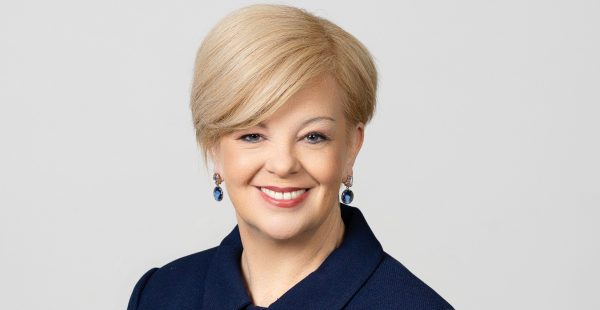FAAA accuses ASIC of being off-target on Dixon Advisory

The Financial Advice Association of Australia (FAAA) has hit out at the Australian Securities and Investments Commission (ASIC) telling a Parliamentary Committee the regulator focused too much on financial advisers at Dixon Advisory while ignoring the product manufacturing side of the business.
“It is evident from all the publicly released information, that ASIC focussed their regulatory attention almost entirely on the financial advice activity at Dixon Advisory and seemingly ignored what happened in the product manufacturing side of the business or the role of the parent company,” the FAAA said.
It used its submission to the Senate Economics References Committee inquiry into Wealth Management Companies and the CSLR to claim that this fact had been demonstrated by ASIC’s earlier responses to questions on notice including that product manufacturing side of the business was not core to ASIC’s investigation.
“ASIC chose to focus almost exclusively on the advice side of the business, reducing the prospect of finding evidence that might have enabled action against further directors and management,” the FAAA said.
“We believe that this approach failed consumers. It also highlights a flaw in the relevant legislation as it demonstrates that it is much easier to achieve success in action taken against a financial adviser on the basis of inappropriate advice, than it is to take action against directors and managers of a financial advice operation that designs and operates a business model that is fundamentally wrong and detrimental to consumers.
“It also highlights that it is very difficult for ASIC to take action against an entity, including the Responsible Entity and the investment manager, for failings in the management of a fund,” the submission said.
It said it was quite obvious that senior management, who were on the Dixon Advisory Investment Committee, were integrally involved in prioritising the interests of Dixon Advisory and related entities above the interests of clients”.
“However, Dixon Advisory did not concede this action in their negotiations with ASIC (2021) and as a result it was dropped in the ultimate settlement (2022),” the FAAA submission said.
“This further highlights questions about ASIC’s decision making in this case, including not investigating product manufacturing issues, not pursuing actions against directors and senior management and removing the original conflict priority action that was at the core of this business model – conflicts of interest.
“At least the class action commenced with a view to pursue the management of the business, however this ultimately was dropped as part of the negotiations over the settlement of the class action. It seems remarkable to us that, it is only the conduct of the individual financial advisers who were thoroughly investigated and deemed at fault – and yet to our knowledge no individual adviser of the group has been prosecuted.”











Arrogant
Secretive
Incompetent &
Corrupt
Seriously, conpare the ASIC actions and rhetoric about the product failure driven Dixon collapse, to the product driven Shield collapse? One of greed and vertical integration (much like the proposed super NCA Asic are supporting) and one of a greedy self serving fundie that tricked ratings houses. Asic’s senior executive and Kirkland claims no adviser issues at Dixon’s where most clients are public servants however Advisers at fault for Shield? But won’t comment on ratings houses? The bias hypocrisy and adviser bleeding us real. Becoming a human rights issue No wonder no new entrants. Stop the lies ASIC stop using and over taxing advisers fto fund your low hanging bullying litigation, then keep all proceeds and stop employing people from Treasury Consumer Groups and Industry funds with a bias and selfish agenda.
ASIC must have had no problem with the advice provided by Dixon’s as the did not raise any concerns when Treasury hired Nerida Cole who was responsible for the advice arm of the business. So if ASIC thinks the product and advice side of Dixons did not warrant a proper investigation then why are all good honest advisers expected to pay millions for the poor advice and product provided by Dixons?
The story is, frankly, a textbook case of regulatory failure. The best interests duty (BID), along with the conflicts priority rule (CPR), became law in July 2013. From that point on, any financial model prioritizing in-house products to the degree that Dixon Advisory and Superannuation Services (DASS) did—reportedly allocating up to 75% of client portfolios to its own products—was a glaring breach of these laws. On any reasonable interpretation, this setup was not compliant with the CPR.
Yet the systemic failure doesn’t stop there. Internal compliance heads at DASS either didn’t grasp the implications of their actions under BID and CPR or willfully ignored them. Even more damning, ASIC—tasked as the financial services watchdog—also appears to have either failed to understand the illegality of DASS’s model or consciously neglected its duty to enforce the law.
The result? A blatantly illegal model was allowed to operate from July 2013 onward, unchecked by either internal governance or regulatory oversight. The consequences of this neglect ripple into the present day, with financial advisers now burdened by levies to compensate for losses—most of which are not even direct capital losses but “opportunity costs” that could have been avoided entirely had ASIC fulfilled its responsibilities as the industry’s enforcer.
This isn’t about funding, powers, or even complex legal ambiguities. It’s about a regulator that failed to act on clear, straightforward breaches of law, leaving consumers exposed and the broader profession to foot the bill for its incompetence. This is a stark reminder of the consequences of regulatory inaction.